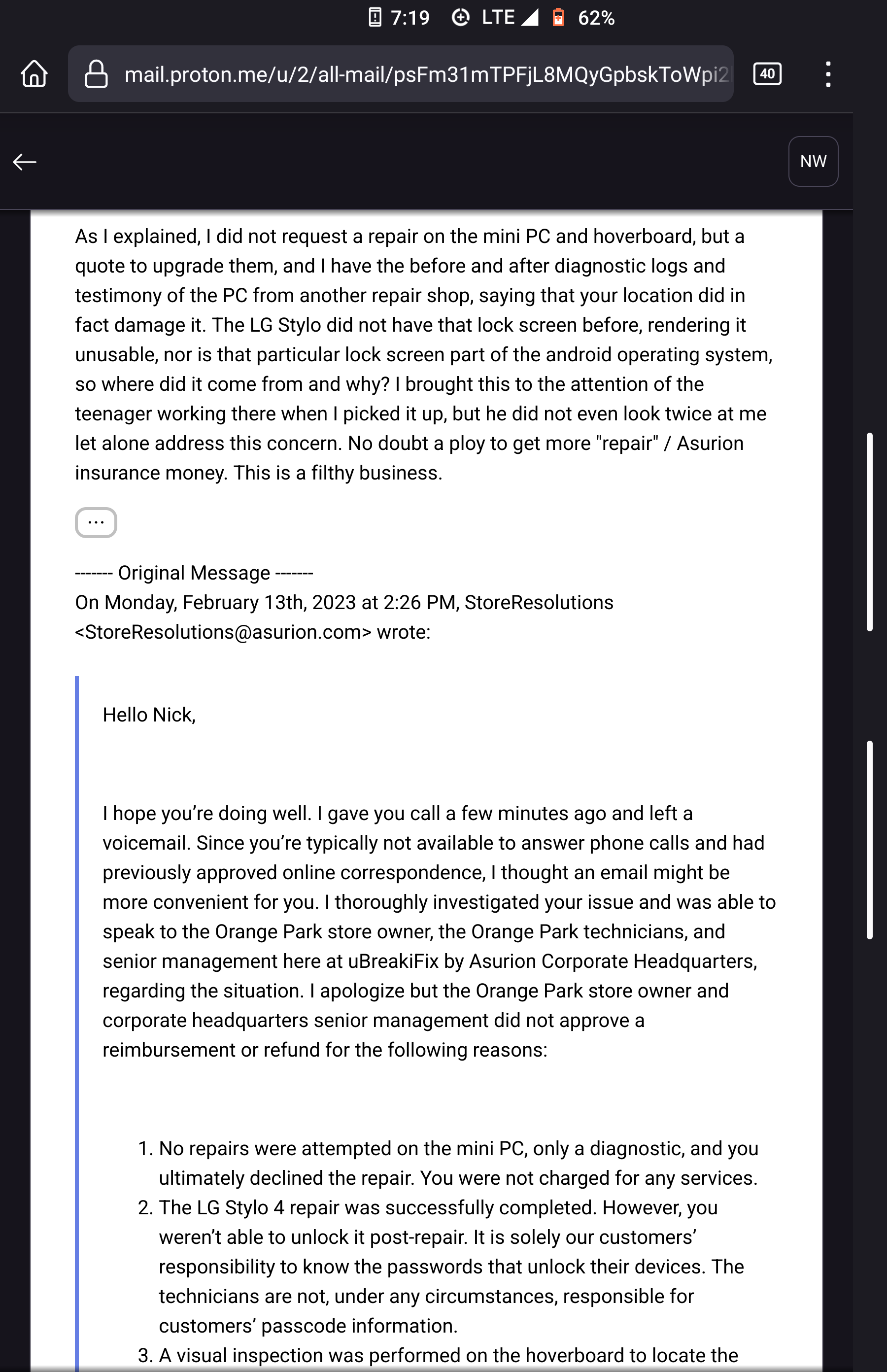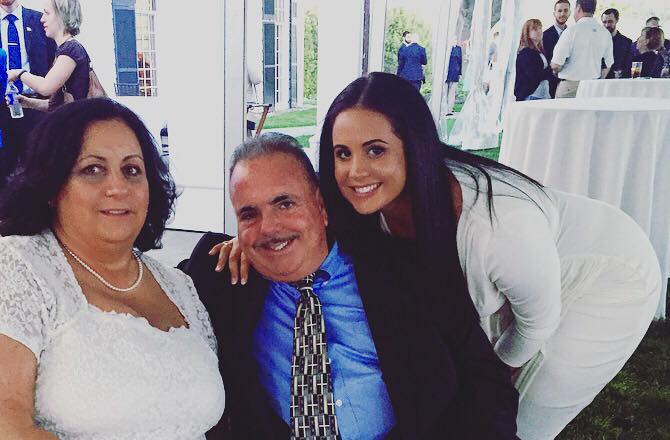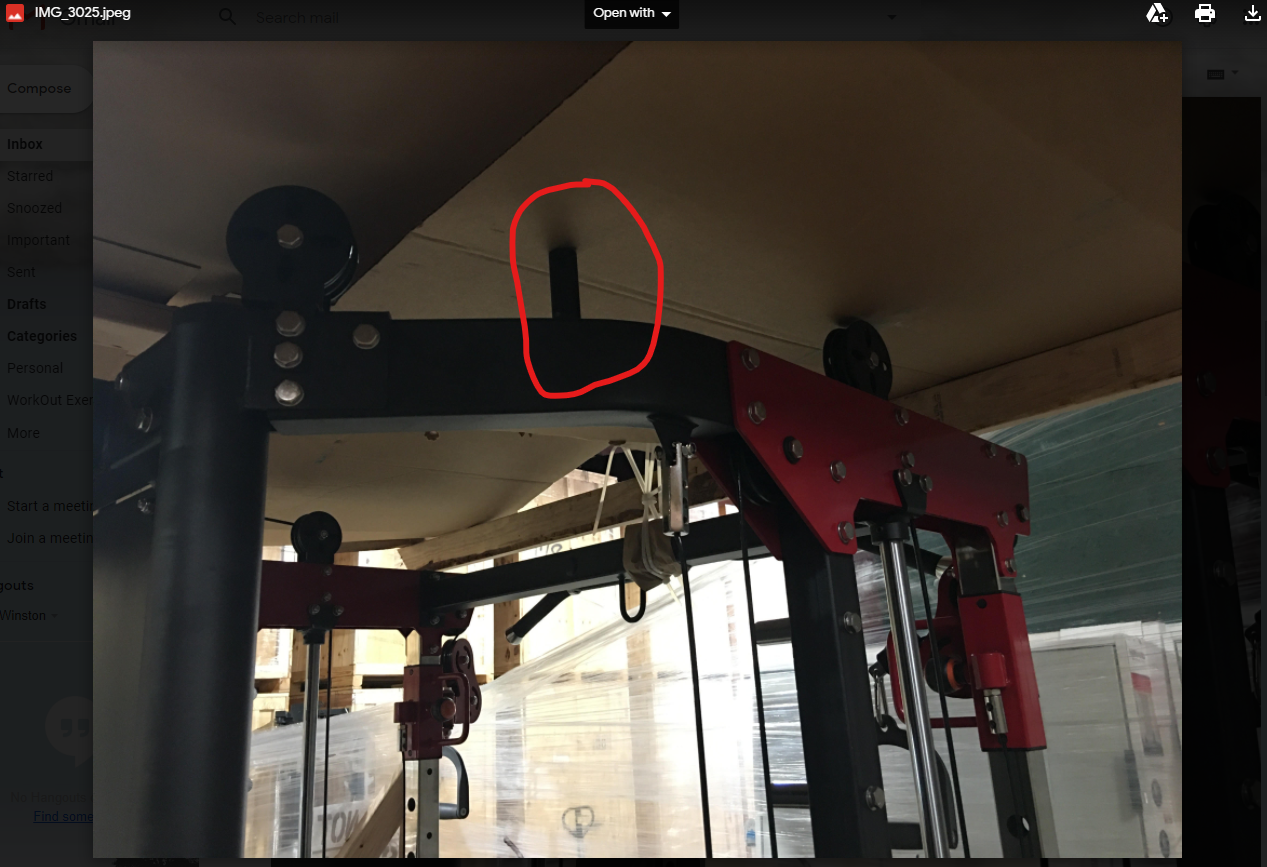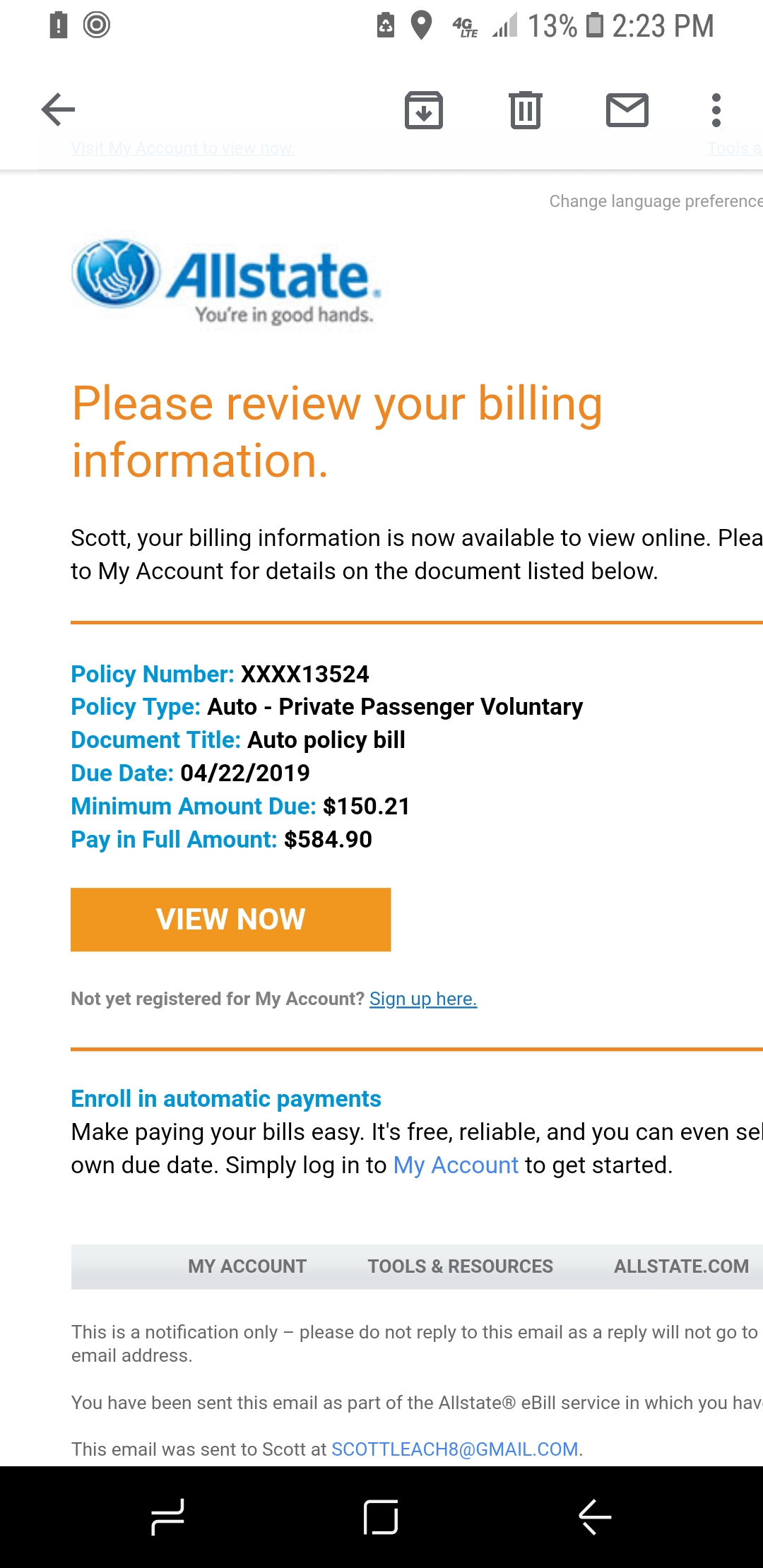Complaint Review: LHR - Hamburg New York
- LHR www.lhrinc.com Hamburg, New York U.S.A.
- Phone: 888-8455995
- Web:
- Category: Telemarketers
LHR violates consumer protection regulations, scam, identity theft ripoff Hamburg New York
*Author of original report: Rebuttal to Rebuttal and update - LHR FDCPA rights violations
*UPDATE Employee: learn the laws
*Consumer Suggestion: Send them a letter to dispute the debt
listed on other sites?
Those sites steal
Ripoff Report's
content.
We can get those
removed for you!
Find out more here.
Ripoff Report
willing to make a
commitment to
customer satisfaction
Click here now..
I've been getting calls from a fellow named Jeff, with LHR Inc. In his first message (I don't answer calls from unknown numbers), he said only that I "have to contact him" at LHR, and left some obscure file number. No mention was made as to what he wanted, let alone any mention as to whether he was trying to collect a debt, a statement that is required by federal regulation. Nor did he specify for whom he is seeking to collect.
I got another call from him, the only other so far, where he again did not state that he was trying to collect a debt, nor anything else about what he wanted, save one thing. He mentioned the name of a bank, but did not say what his relationship to the bank is.
In his messages, he is rude, condescending, and, generally, seems to be trying to pass himself off as a federal investigator, or some other authority. Of course, that part would be difficult to prove in court, but, nonetheless, LHR is failing to comply with the debt collections and practices acts by not stating that they are attempting to collect a debt.
Since I have not heard anything about a collection agency from the bank in quesiton, I must assume that LHR is working on its own behalf. It is entirely possible that this company 'skims' credit reports, looking for candidates, and then uses the information from those credit reports to solicit payments on debts that they do not have the authority to collect.
Worse, it is possible that this company is 'phishing' for identity theft victims using the above method. Almost all of a person's key information is listed on a credit report - all they need is your credit card or bank account number, and you belong to them.
Since there is no evidence provided by this company that they are legit, I think we all must assume the worst, for our own protection. Since they are clearly in violation of at least one consumer protection law, what guarantee have we, as consumers, that they are not just negligent, but aren't outright criminals?
Remember - it is never a good idea to give your bank account or credit card numbers over the phone, even to a rep of a company you trust. LHR is hardly that.
Either they are scam artists, or they broke the one sigle law that they operate under. Is it then a case of fraud, or of fraud, ladies and gentlemen? On the one end, they may be trying to steal your identity (fraud). On the other, they are misrepresenting themselves in order to trick you (fraud).
So, Mr. Jeff, with LHR: which is it?
Bryan
Fulton, New York
U.S.A.
This report was posted on Ripoff Report on 08/07/2007 11:40 AM and is a permanent record located here: https://www.ripoffreport.com/reports/lhr/hamburg-new-york-14075/lhr-violates-consumer-protection-regulations-scam-identity-theft-ripoff-hamburg-new-york-265814. The posting time indicated is Arizona local time. Arizona does not observe daylight savings so the post time may be Mountain or Pacific depending on the time of year. Ripoff Report has an exclusive license to this report. It may not be copied without the written permission of Ripoff Report. READ: Foreign websites steal our content
If you would like to see more Rip-off Reports on this company/individual, search here:
#3 Author of original report
Rebuttal to Rebuttal and update - LHR FDCPA rights violations
AUTHOR: Bryan - (U.S.A.)
SUBMITTED: Thursday, August 16, 2007
To all "Consumers",
"Mr. Smith"'s statement that he finds you repulsive should not sway you, or discourage you into backing down. The fact of the matter is that LHR buys its debts from banks (LHR, too, is a filthy "consumer") - which is why they fell no urge toward customer service; you are not 'customers' to them, only a resource to be mined.
Despite "Mr. Smith"'s statements (which I am sure do not reflect the feelings of LHR. Really.), there is nothing to be ashamed of in owing a debt. Life happens - divorce, death, disaster, etc. Are we to be "ashamed" because the events of life have put is in a difficult position? Hardly. This is nothing more than rhetoric.
If anything, it is LHR that should be ashamed, as well as organizations like them, for preying on the weak and/or distraught - and for hiring employees that harbor such ignorant and hurtful views.
The fact of the law, which I, the filthy consumer, seem to know better than "Mr. Smith", despite his implication otherwise, is that all communications for the purposes of collecting a debt must be identified EVERY SINGLE TIME. LHR even admits as much on their website, which also includes a link to the FDCPA, which concurs.
However, LHR, like all predatory debt-mining financial institutions, believes that those they victimize with such tricks as they employ do not have the financial resources to seek a remedy when their rights are trodden upon. It is unfortunate that, as shown by the collapse of the sub-prime mortgage market, they are generally correct.
It is pitiful that an American company would stoop to this level of unlawful abuse, and is a state worthy of true shame. Worse, though, their success seems to prove the old business adage: It is only 'illegal' if you get caught.
Don't let companies like this bully you, trick you, swindle you, or deceive you into believing their nonsense. It is nothing more than a scare tactic devised to separate you from what money you do have all the more easily.
Mind what people do, not just what they say. Notice that LHR does not make use of Rip-off Report's Corporate Advocacy program? Might it be because they know they are in the wrong? I suspect they won't file for a judgment against their filthy consumers either, because they know that if they bring the case before a judge, where the filthy consumer gets a say, they will lose. They know that violations of the FDCPA can cause them to forfeit their precious debts, or result in fines against them, payable to the consumer, and won't take the risk that justice is actually just.
The wicked will preach their own virtues, and your sins, readily enough, but when the time comes to stand in fair judgment, they prove their lies by a refusing to be subject to such an 'insult' to their 'unquestionable' righteousness.
Next, they'll be telling us that they do what they do for our own good... And all of this assumes that LHR isnt actually a scam, which has yet to be determined, since they refuse to provide any proof of their legitimacy, on the basis that it is for your privacy protection.
Incidentally, LHR has, so far, had no response for me concerning the violations of my protected rights that I've experienced, which Ive brought to their attention. Unless, of course, "Mr. Smith" IS their official answer. We should be "ashamed" to not be independently wealthy? Please!
"Learn the law", "Mr. Smith" tells us. Considering that it is he who must ahere to it, I think it would be more prudent if he, and the rest of the pirates at LHR, did so first.
#2 UPDATE Employee
learn the laws
AUTHOR: John Smith - (U.S.A.)
SUBMITTED: Wednesday, August 15, 2007
First thing is first. IT IS ILLEGAL TO DISCLOSE THE NATURE OF DEBT TO THIRD PARTIES. This means collectors CAN NOT leave information about the debt you owe on your machine where other people can hear it. This is to protect your privacy. If i was in debt i would be ashamed of myself for not paying my bills and wouldn't want every one knowing about it. The FDCPA makes these laws for debtors protection. LHR does not violate the FDCPA. We can be mean and nasty but we do it with in the legal limits.
Now you are wondering "how can you be mean or nasty in legal limits" it's simple. Once you go into debt you are no longer a customer, you become a "consumer". Think about that last word.Look it up in the dictionary. It's not a good term. People arn't going to give you "customer service" when you owe them money.
Finally, if you ever pay a bill keep the records to any major transaction. This way if you are told you owe it you have proof that will hold up in court.Then the agency claiming you owe it looses out on a lot of money and you make a lot. We at LHR play fair.
So play fair with us and we will work with you. Lie about your debt, give us the run around, we'll win in the end cause we make sure the law is on our side.
#1 Consumer Suggestion
Send them a letter to dispute the debt
AUTHOR: Robert - (U.S.A.)
SUBMITTED: Wednesday, August 08, 2007
In a nutshell, they are a collection agency aka "receivables management industy."
I do not recommend speaking to them. I would send them a letter (reference the "reference number" he gave you to demand validation of the debt. They may or may not OWN the debt, but that's why you need to request validation so that you may learn who the CREDITOR is - that's who you really need to deal with.
OK Here's what you can do to force the collection agency to back off and validate the debt:
FIRST - Read the Fair Debt Collection Practices Act at http://ftc.gov/os/statutes/fdcpa/fdcpact.htm.
It is important to understand the definitions used in the FDCPA, so I have included that section of the law. Many collectors do not fall under the FDCPA, so please read paragraph 6 and its subparagraphs very carefully:
803. Definitions [15 USC 1692a]
As used in this title --
(1) The term "Commission" means the Federal Trade Commission.
(2) The term "communication" means the conveying of information regarding a debt directly or indirectly to any person through any medium.
(3) The term "consumer" means any natural person obligated or allegedly obligated to pay any debt.
(4) The term "creditor" means any person who offers or extends credit creating a debt or to whom a debt is owed, but such term does not include any person to the extent that he receives an assignment or transfer of a debt in default solely for the purpose of facilitating collection of such debt for another.
(5) The term "debt" means any obligation or alleged obligation of a consumer to pay money arising out of a transaction in which the money, property, insurance or services which are the subject of the transaction are primarily for personal, family, or household purposes, whether or not such obligation has been reduced to judgment.
(6) The term "debt collector" means any person who uses any instrumentality of interstate commerce or the mails in any business the principal purpose of which is the collection of any debts, or who regularly collects or attempts to collect, directly or indirectly, debts owed or due or asserted to be owed or due another. Notwithstanding the exclusion provided by clause (F) of the last sentence of this paragraph, the term includes any creditor who, in the process of collecting his own debts, uses any name other than his own which would indicate that a third person is collecting or attempting to collect such debts. For the purpose of section 808(6), such term also includes any person who uses any instrumentality of interstate commerce or the mails in any business the principal purpose of which is the enforcement of security interests. THE TERM DOES NOT INCLUDE --
(A) any officer or employee of a creditor while, in the name of the creditor, collecting debts for such creditor;
(B) any person while acting as a debt collector for another person, both of whom are related by common ownership or affiliated by corporate control, if the person acting as a debt collector does so only for persons to whom it is so related or affiliated and if the principal business of such person is not the collection of debts;
(C) any officer or employee of the United States or any State to the extent that collecting or attempting to collect any debt is in the performance of his official duties;
(D) any person while serving or attempting to serve legal process on any other person in connection with the judicial enforcement of any debt;
(E) any nonprofit organization which, at the request of consumers, performs bona fide consumer credit counseling and assists consumers in the liquidation of their debts by receiving payments from such consumers and distributing such amounts to creditors; and
(F) any person collecting or attempting to collect any debt owed or due or asserted to be owed or due another to the extent such activity (i) is incidental to a bona fide fiduciary obligation or a bona fide escrow arrangement; (ii) concerns a debt which was originated by such person; (iii) concerns a debt which was not in default at the time it was obtained by such person; or (iv) concerns a debt obtained by such person as a secured party in a commercial credit transaction involving the creditor.
SECOND - send a certified letter, return receipt requested, to the DEBT COLLECTOR to dispute the debt and request written validation of the debt or any copy of a judgment, or the name and address of the original creditor, and a copy of such validation or judgment, or name and address of the original creditor. Also, include a statement stating that you do not wish to be contacted again until you receive all the written debt validation information you have requested. You should specifically ask for the following documentation:
What the money you say I owe is for;
Explain and show me how you calculated what you say I owe;
Provide me with copies of any papers that show I agreed to pay what you say I owe;
Provide a verification or copy of any judgment if applicable;
Identify the original creditor;
Prove the Statute of Limitations has not expired on this account;
Show me that you are licensed to collect in my state;
Provide me with your license numbers and Registered Agent.
Once they receive the letter, they must cease all collection efforts until they provide the written information requested. This is in accordance with the Fair Debt Collection Practices Act.
THIRD - Once you received the written validation information requested, contact the CREDITOR (who owns the debt) via certified mail to resolve the matter.
Please note that simply sending the letter telling them to leave you alone does not absolve a valid debt. What the letter does do is force them to provide you with written validation of the debt and to stop all collection actions until you receive the information. Once you have the information, you should act on it accordingly by contacting the CREDITOR via certified mail.
Some other notes: Any statute of limitations does not absolve a valid debt; it merely prohibits the creditor from going to court to obtain a money judgment against you. IF there is already a money judgment, the statute of limitations most likely is longer - in New York State it's 20 years.
You can check the statute of limitations for debt in your state at http://www.fair-debt-collection.com/statue-limitations.html.
In addition, a credit report listing does not in any way determine if a debt is valid or not, or collectible or not that is what courts are for. There are 3 ways a valid debt can be absolved; you pay it off, the creditor forgives it, or bankruptcy court orders it absolved.
Section 809 of the FDCPA covers debt validation nicely:
809. Validation of debts [15 USC 1692g]
(a) Within five days after the initial communication with a consumer in connection with the collection of any debt, a debt collector shall, unless the following information is contained in the initial communication or the consumer has paid the debt, send the consumer a written notice containing --
(1) the amount of the debt;
(2) the name of the creditor to whom the debt is owed;
(3) a statement that unless the consumer, within thirty days after receipt of the notice, disputes the validity of the debt, or any portion thereof, the debt will be assumed to be valid by the debt collector;
(4) a statement that if the consumer notifies the debt collector in writing within the thirty-day period that the debt, or any portion thereof, is disputed, the debt collector will obtain verification of the debt or a copy of a judgment against the consumer and a copy of such verification or judgment will be mailed to the consumer by the debt collector; and
(5) a statement that, upon the consumer's written request within the thirty-day period, the debt collector will provide the consumer with the name and address of the original creditor, if different from the current creditor.
(b) If the consumer notifies the debt collector in writing within the thirty-day period described in subsection (a) that the debt, or any portion thereof, is disputed, or that the consumer requests the name and address of the original creditor, the debt collector shall cease collection of the debt, or any disputed portion thereof, until the debt collector obtains verification of the debt or any copy of a judgment, or the name and address of the original creditor, and a copy of such verification or judgment, or name and address of the original creditor, is mailed to the consumer by the debt collector.
(c) The failure of a consumer to dispute the validity of a debt under this section may not be construed by any court as an admission of liability by the consumer.
Hope this helps.

Advertisers above have met our
strict standards for business conduct.














































